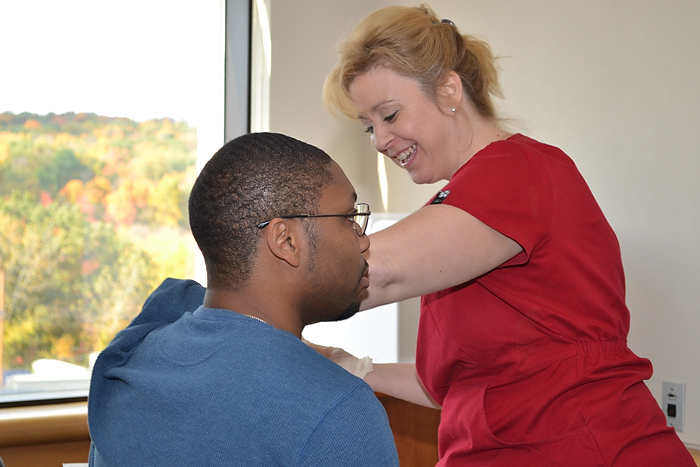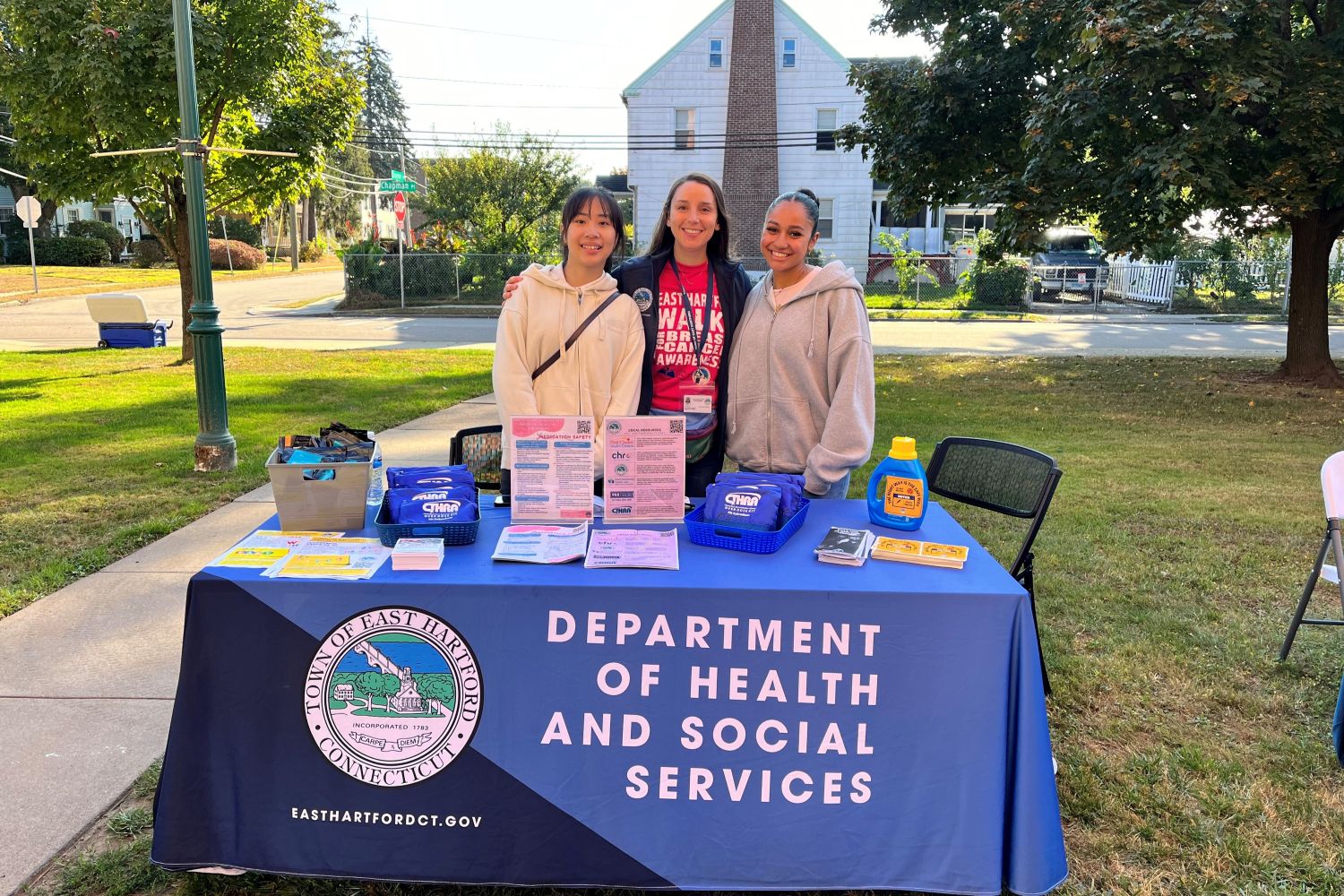
It’s true, the formula for the seasonal flu vaccine is based on best guesses as to which strains of the virus are most likely to cause problems this year.
“Even if it’s not an exact match of what’s going to go around, it’s still better than not getting it,” says Laura Haynes, a professor of immunology at the UConn Health Center and researcher in the UConn Center on Aging.
What’s also true, she emphasizes, is, “You cannot get the flu from the flu vaccine!”
That goes for all versions of the vaccine, and there are a number of options available this flu season.
“We’re beginning to find ways to improve vaccines,” says Haynes, whose expertise is in T cell biology and the role T cells, which are vital components of the body’s immune system, play in response to flu. “If I’m looking at one small aspect of T cell function in a mouse model that may to a layperson seem insignificant, it is important in developing new vaccines for people.”
Haynes is involved in research from a National Institutes of Health program grant that includes study of human cells in vitro, or outside the body, at the UConn Health Center. Also part of the grant are clinical trials of vaccines, taking place in other parts of the country.
Of particular concern to Haynes and her collaborators is the threat influenza can pose to the elderly population.
“Because the response to both the vaccination and infection is reduced with age, the infection goes on longer in older people, and there’s more inflammation,” Haynes says. “That’s what sets you up for serious complications, like pneumonia and even stroke. It exacerbates cardiac events.”
One form of the vaccine now available is a high-dose version, shown in clinical trials to be more effective than its standard counterpart in preventing influenza in adults 65 and older.
“The high-dose has a higher concentration of the flu proteins, and it has been shown to induce a bit of a better response in older people,” Haynes says. “Sometimes if you give more protein, it works better. It’s just the immune system in older people is somewhat sluggish. It doesn’t work as well as it does in younger people.”

The traditional standard flu shot is known as trivalent, meaning it contains proteins from three inactive strains of the virus. A quadrivalent shot, based on four strains, is new this year. So is what’s known as the recombinant influenza vaccine, ideal for those with egg allergies. Eggs are used in production of the standard flu shot. The recombinant flu shot is licensed for ages 18 to 49.
An intradermal vaccine, which instead of the familiar needle into the muscle delivers the flu shot with a much smaller needle into the skin, debuted in 2011.
The most effective form of the vaccine for those ages 6 to 49 may be the one delivered by nasal spray rather than needle, known as live attenuated. It contains four strains of the virus, but unlike its injectable counterparts, those strains are not killed in the production process.
“It does have a live virus in it, but as the name also implies, it’s attenuated, which means it can’t live anywhere other than your nose,” Haynes says. “Once it gets into your body, it’s too warm for the virus to replicate. So it replicates in your nose and you get a little immune response that’s protective. That’s the one that’s probably going to give you the best protection, especially if you’re a fairly flu-naïve person, like children are. The live attenuated was a very good progression in development of influenza vaccines.”
Haynes recommends consulting your physician to determine which form of the vaccine is best for you.
“What we don’t have yet is a universal vaccine,” she says. “There are many people working on that. Maybe within the next few years we’ll have something.”
The Centers for Disease Control and Prevention recommends some form of the flu vaccine for everyone older than 6 months. The CDC identifies those age 65 and older, age 2 and younger, pregnant women, and anyone with chronic medical conditions to be at most risk for complications from seasonal flu.
“Younger people should get their flu vaccine too,” Haynes says. “Even if you’re young and don’t care if you get the flu, you can still spread it around and give it to others. It’s a matter of public health.”
To generate data that could contribute to the advancement of effective vaccines against influenza and other infectious diseases in older people, the UConn Center on Aging is seeking volunteers ages 20 to 25, 50 to 65, and 66 to 90 for a research study. It includes standard flu vaccinations and monetary compensation. Call 860-679-3043 for more information.
Follow the UConn Health Center on Facebook, Twitter and YouTube.



